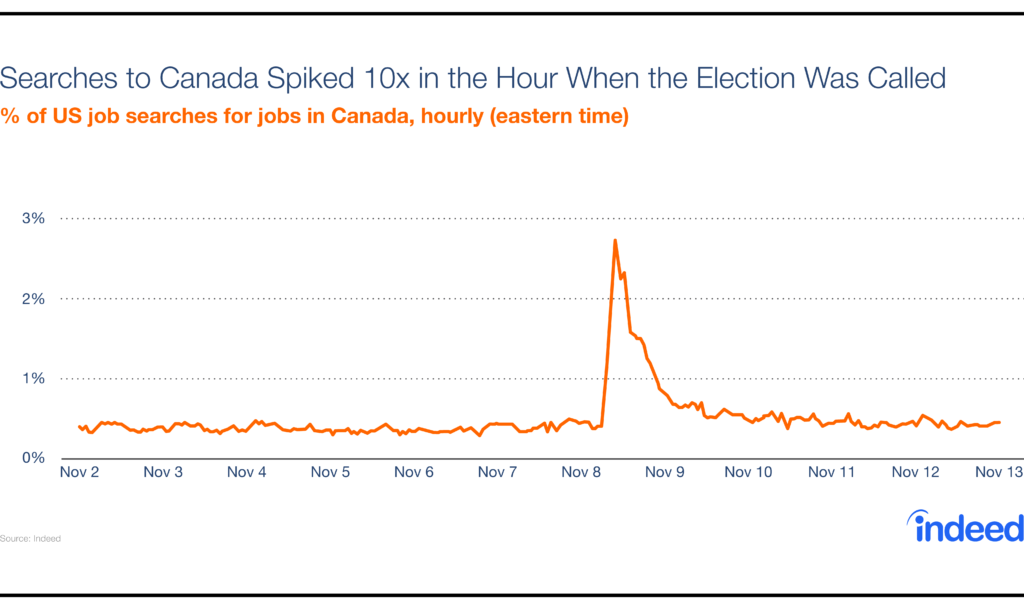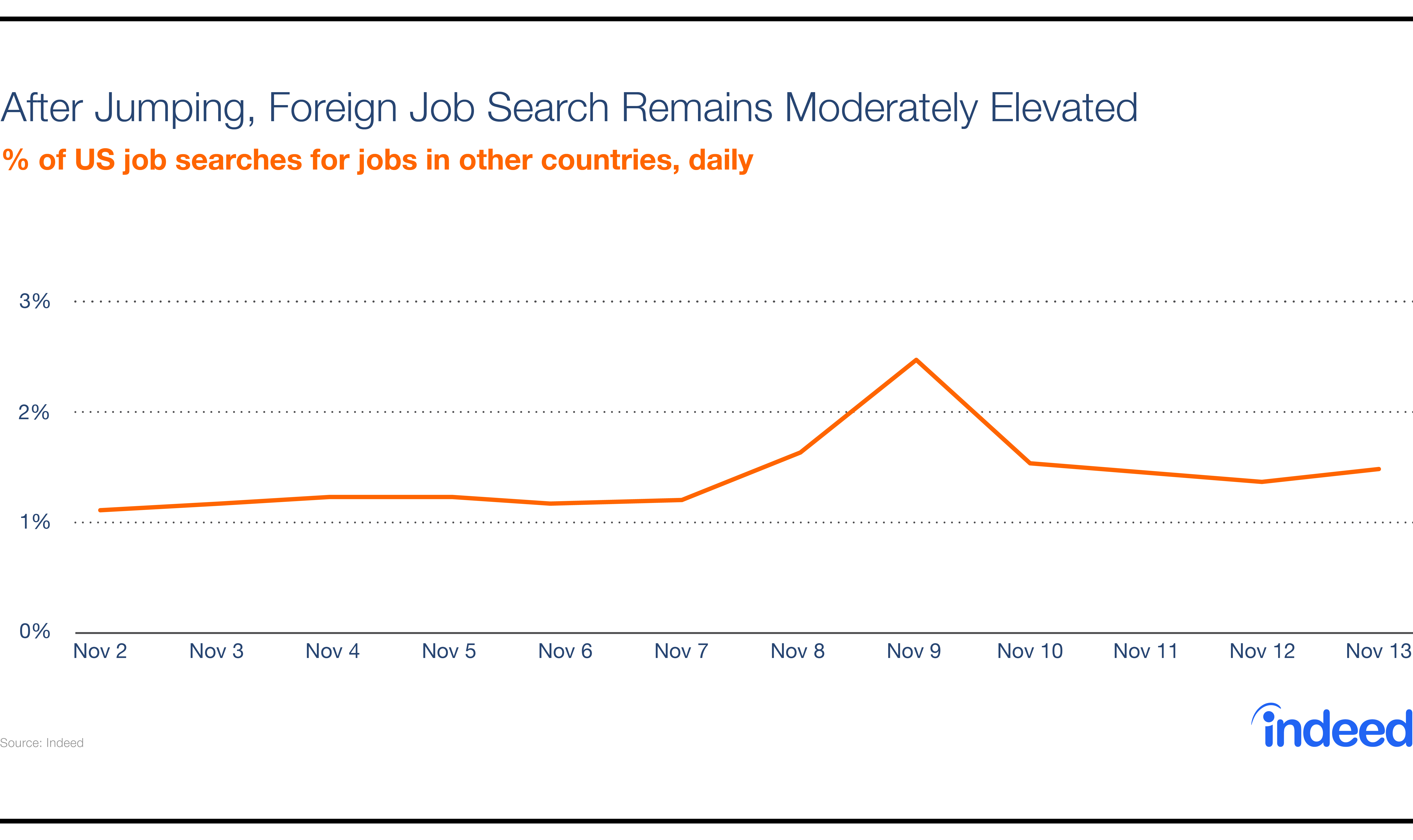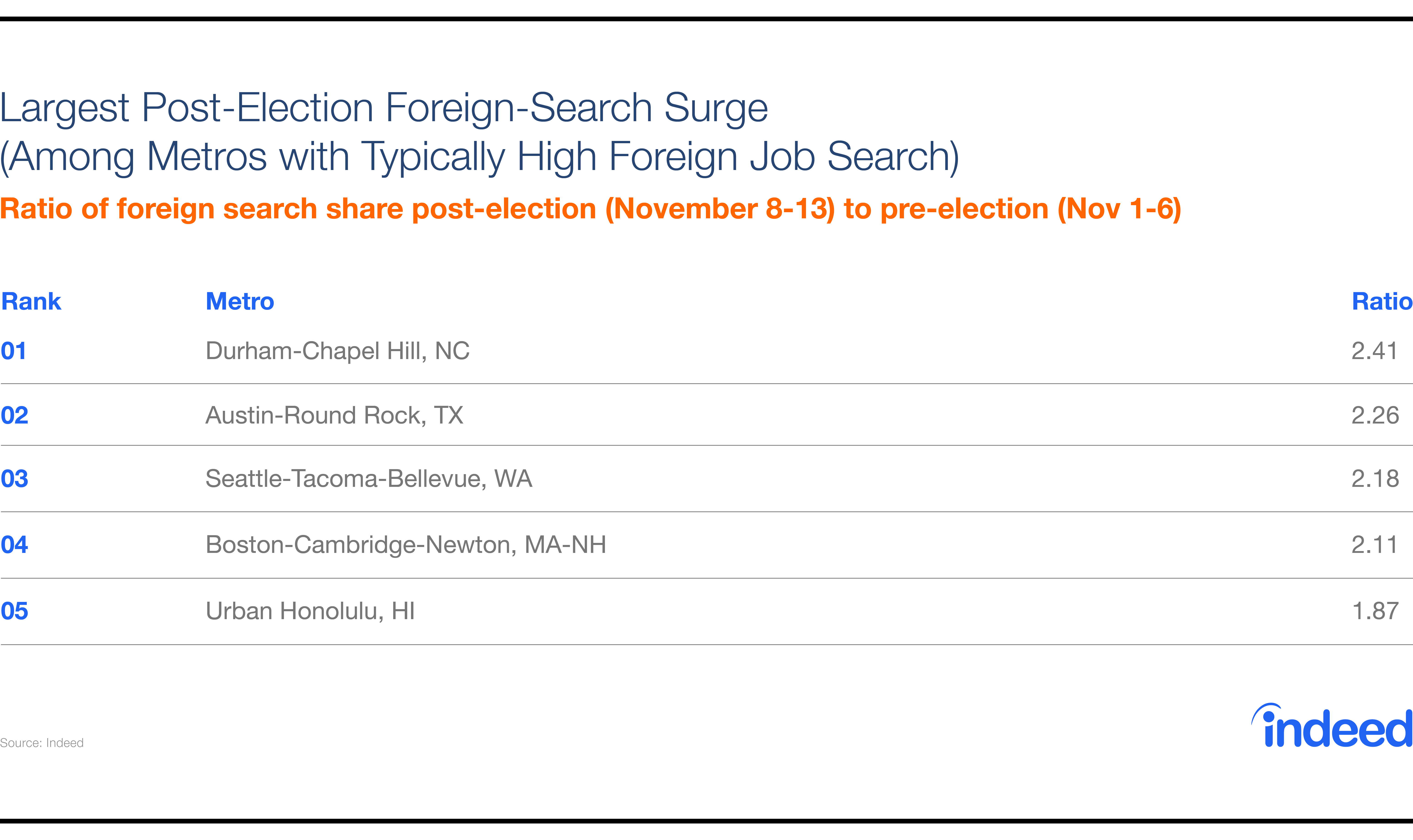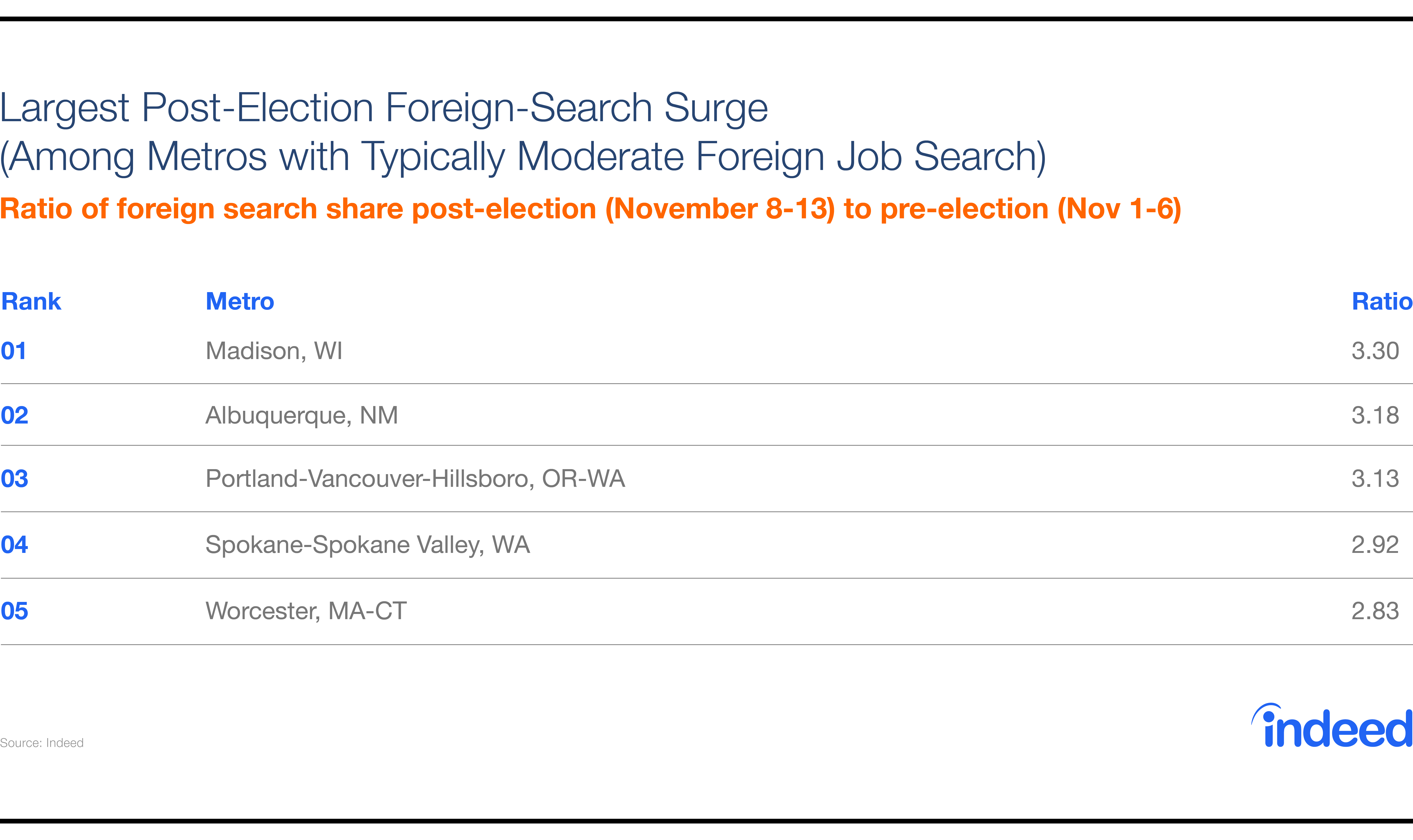During the bitter and divisive presidential campaign, many wondered, threatened, or promised to move to Canada if their candidate lost. Some celebrities even went on-record about leaving the U.S. if Trump won. So what happened? Lena Dunham may be taking some heat for “breaking her promise,” but plenty of others Americans were looking for jobs in Canada as Trump’s victory started to look likely and then real.
The share of U.S. job searches to Canada suddenly began climbing on election night in the 9 p.m. hour (eastern time), as the likelihood of a Trump victory started to climb. In the midnight hour, when the election was called for Trump, 2.7% of U.S. job searches on Indeed were for jobs in Canada — more than ten times the normal share for that time of day. That spike in job searches to Canada was dramatic but short lived. As the chart shows, the share of searches to Canada was nearly back to normal by Wednesday afternoon, and even more so by Thursday.

The Canada spike, though, is far from the whole story. Job searches outside the U.S. remain elevated above pre-election levels, and not just to Canada. We’ve continued to track search patterns for jobs outside the U.S. to see who might be looking to leave and to where. Here’s what we’ve found:
Foreign search activity remains moderately elevated
The peak day for foreign job search was Wednesday, just after the election, when the share of U.S. job searches for jobs elsewhere was 2.4%, more than double the share of the previous Wednesday. But by Thursday the foreign job search share fell to 28% above the previous Thursday. Through the weekend, foreign job search share was 10–25% above the level of one week earlier. The post-election surge, therefore, was largely temporary, though has stabilized above the pre-election level.

New Zealand saw the biggest surge
Canada got all the attention as the place to go, and no wonder: Canada is by far the most popular country outside the U.S. where Americans search for jobs on Indeed. But relative to normal job-search patterns, the post-election search surge was not strongest in Canada; New Zealand, in fact, saw a much larger increase in job-search activity compared to normal. Granted, the jump in searches to New Zealand is from a much lower starting point than searches to Canada, which are far more common. But if you’re trying to get far away from America and America’s influence, New Zealand is a better bet than Canada. Plus, you might eventually bump into Ruth Bader Ginsburg.
From election day through Sunday night (November 8–13), the share of U.S. job searches to New Zealand was more than four times the share of the same days one week earlier (November 1–6). Canada was second, with a ratio over two. (The 10x spike for Canada mentioned above was just for the hour when the election was called, whereas now we’re looking at the six-day span.)
Ireland, Spain, and Australia round out the top five. The U.K. is farther down: perhaps Brexit made the U.K. a tougher sell for Americans looking to escape their own political shock. Beyond the top ten, some countries that typically get lots of search activity from the U.S. got barely a bump: searches to Mexico, Brazil, and India increased only slightly or not at all.
Foreign searches jumped more in blue counties
The increase in job searches outside the U.S. cut across various groups: both college grads and those without a college degree, as well as millennials and gen Xers. But one difference in post-election foreign searches stood out: the increase was greater in counties that favored Clinton over Trump.
To see this, we looked at the foreign search share during November 8–13 relative to the five previous weeks, for counties and metropolitan areas across the U.S., and compared it with the 2016 voting data from Dave Leip’s Atlas of U.S. Presidential Elections. The correlation between a county’s vote margin for Clinton and the increase in foreign job search share was positive and statistically significant. (It was .24 for counties that typically have a high foreign-search share already, and .30 for counties that typically have a modest foreign-search share. Because we are looking at the increase in search share, we compared areas that had similar pre-election foreign search shares.)
Among large metropolitan areas that typically have a high share of foreign job search, the post-election surge was biggest in Durham, N.C., Austin, Texas and Seattle— all left-leaning, highly educated metros. The post-election foreign-search increase was minimal, in contrast, in Houston and Los Angeles.

Among large metropolitan areas that typically have a moderate share of foreign job search, the post-election surge was biggest in Madison, Wis., Albuquerque, N.M., and Portland, Ore. — the last being where anti-Trump protests turned violent. (among those with typically moderate foreign job search)

Don’t count on a huge exodus from Durham and Madison to New Zealand, though. Remember, the big increase in foreign searches was in the first few hours after the election results were known. Unless the new administration brings further shocks, any continued increase in foreign job search will likely be modest.
